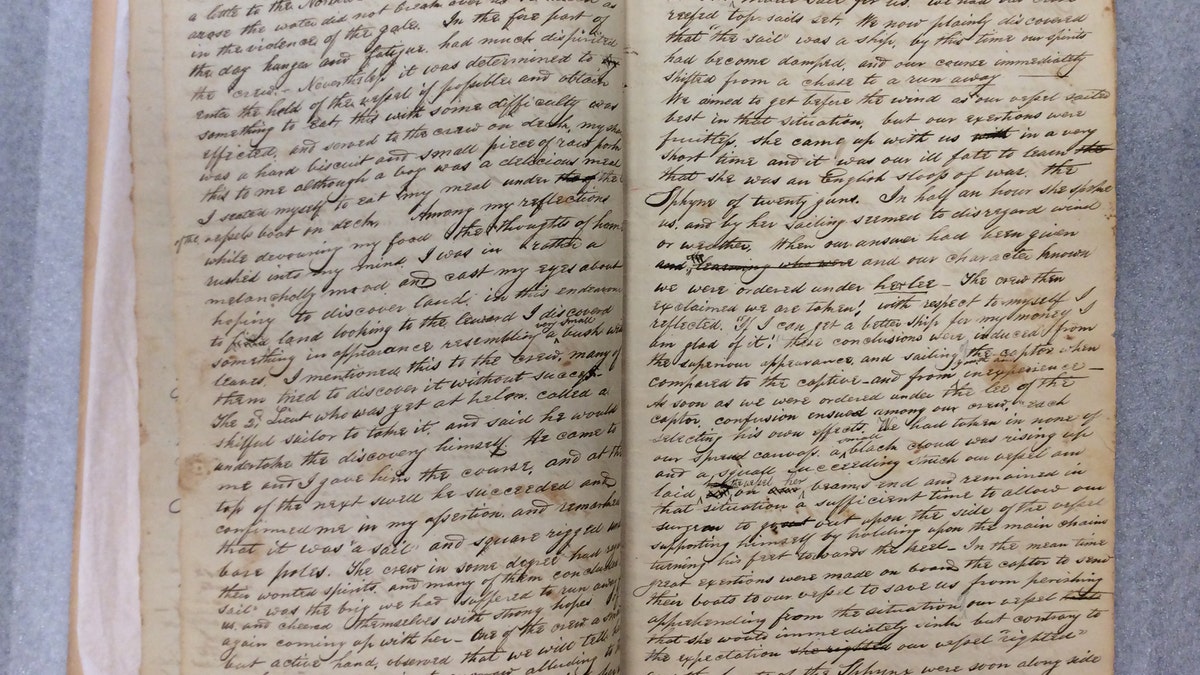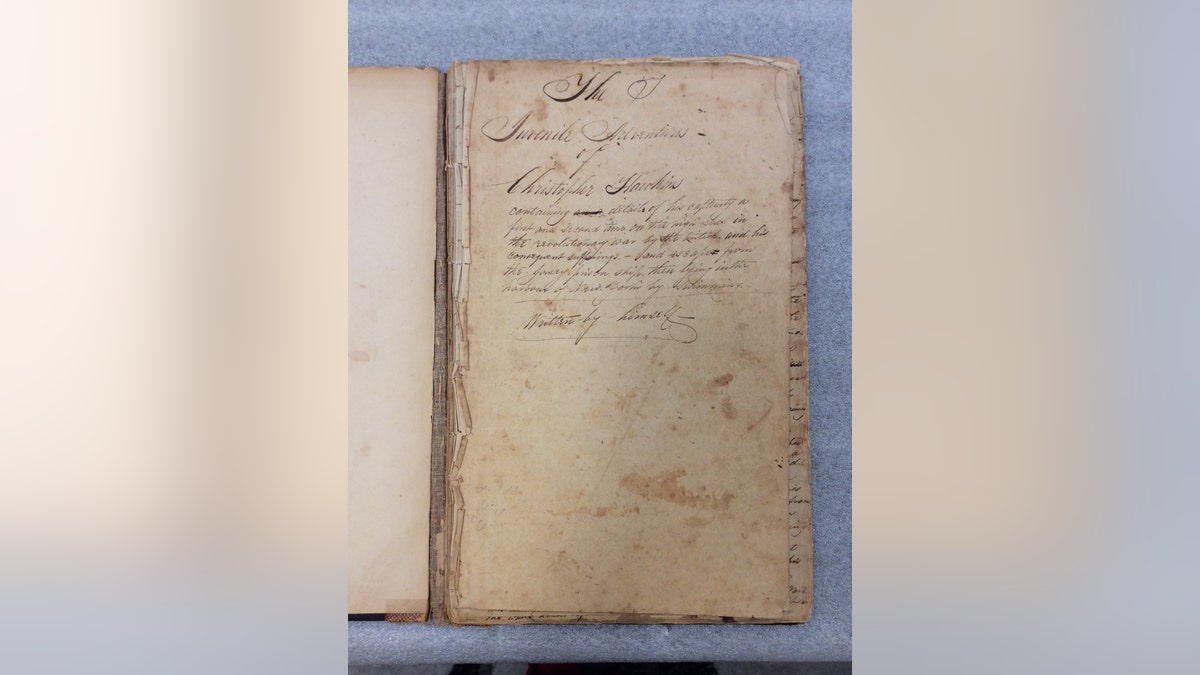
Christopher Hawkins' Revolutionary War journal (Museum of the American Revolution)
A young American sailor’s journal detailing his harrowing experiences during the Revolutionary War has been donated to the Museum of the American Revolution in Philadelphia.
Born in Providence, Rhode Island, in 1764, Christopher Hawkins was just 13 years of age when he joined a privateer ship. The practice of privateering, which was widespread during the Revolutionary War, encouraged private U.S. citizens to harass British ships for financial gain.
Captured by British forces, Hawkins languished with other patriots in the infamous HMS Jersey prison ship in New York harbor. More than 11,000 American prisoners died on British prison ships during the war, according to History.com, which notes that the Jersey, dubbed “Hell” by its inmates, was particularly notorious.
'THE FIRST OVAL OFFICE': MUSEUM WILL SHOWCASE WASHINGTON’S REVOLUTIONARY WAR TENT
In the journal, Hawkins describes escaping from the prison ship by stealing an axe from the ship's cook and breaking his way through a barred porthole during a thunder storm. The prisoner carefully timed his blows with a storm’s thunder claps to mask the sound of his axe, according to the Museum of the American Revolution.

Hawkins' family recently traveled to Philadelphia to donate the journal to the Museum (Museum of the American Revolution)
Hawkins swam for two and a half hours to escape the ship, he wrote in the journal.
The fascinating record was discovered nearly two decades ago in the linen closet of Hawkins’ ancestor, Margaret Hodder Davis of Kansas City. Davis’ son Heywood Davis recently traveled to Philadelphia with his family to donate the journal to the Museum, which plans to display it.
EXTREMELY RARE COPY OF THE DECLARATION OF INDEPENDENCE, ONCE HIDDEN BEHIND WALLPAPER, SURFACES
Hawkins was 70 years old when he wrote the journal in 1834. A version of his experiences, entitled “The Adventures of Christopher Hawkins” was published in 1864, 27 years after his death.

Hawkins was 70 years old when he wrote the journal in 1834 (Museum of the American Revolution)
“Hawkins' account is one of the liveliest tales of the Revolutionary War from the perspective of a boy sailor that exists,” said Dr. Philip Mead, Chief Historian and Director of Curatorial Affairs at the Museum of the American Revolution, in a statement. “Until now, scholars have only known Hawkins' tale from the published version in 1864. Reading the stories from Hawkins' own hand brings the story to life in a new way. It is as close as we can get to sitting by a fireside and listening to the aging veteran tell his tale.”
Revolutionary War artifacts offer a fascinating glimpse into the events that shaped America. Items in the Museum of the American Revolution’s collection include George Washington’s tent and his headquarters flag.
PAUL REVERE FAMILY OUTHOUSE MAY HAVE BEEN UNCOVERED IN BOSTON
In August 2017, a Revolutionary War-era knife was unearthed during an archaeological dig at Colonial Michilimackinac in Mackinaw City, Michigan, the latest in a series of amazing finds at the site.
The following month, archaeologists in Boston discovered a centuries-old outhouse that may be linked to the family of Patriot Paul Revere.
Follow James Rogers on Twitter @jamesjrogers








































